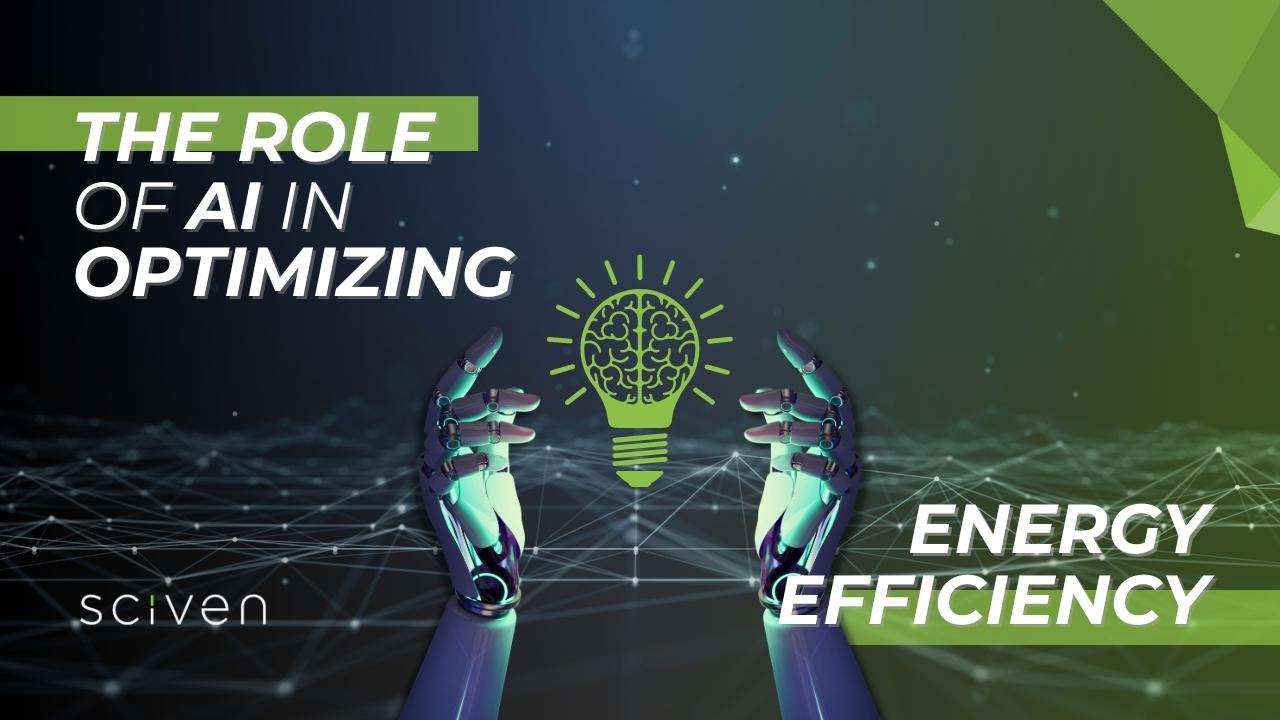Unleashing the Future of Sustainable Engineering
AI isn’t just a trend; it’s a significant change in managing energy consumption and production. In this week’s edition of SCIVEN SYNERGIES, we’re exploring how AI is transforming and how we can approach energy efficiency on a global scale.
Predictive Analytics: The Heartbeat of Modern Energy Systems
The prowess of AI in energy management is largely rooted in predictive analytics. This technology goes beyond mere data analysis; it foretells energy demands, ensuring a lean and responsive energy supply. For instance, smart grids in urban landscapes now dynamically adjust to changing energy needs, avoiding wastage and maximizing efficiency.
Machine Learning: Innovating Beyond the Conventional
Machine learning, a subset of AI, is redefining energy optimization. These algorithms absorb and analyze data from myriad sources, perpetually enhancing their ability to identify inefficiencies. Consider smart buildings: by analyzing occupancy patterns, these structures autonomously regulate lighting and heating, carving a path to significant energy savings.
Renewable Energy and AI: Symbiotic Technologies
According to the International Energy Agency (IEA), the energy sector is increasingly adopting AI to enhance efficiency and spur innovation. AI’s role becomes even more critical when paired with renewable energy sources. In solar energy, AI algorithms predict sunlight patterns, optimizing solar panel angles for maximum energy absorption. Similarly, in wind energy, AI assists in predicting wind patterns, helping turbines operate at optimal efficiency.
Global Applications: AI’s Diverse Impact
The application of AI in energy efficiency is diverse and global. Europe’s smart cities, for instance, utilize AI for efficient urban planning and energy distribution. In Asia, AI-driven analytics are maximizing the output of solar farms, demonstrating the technology’s scalability and versatility.
AI in Regulatory Compliance and Forecasting
AI also assists in navigating the complex landscape of energy regulations, helping companies adhere to environmental standards. Furthermore, AI’s forecasting abilities enable better planning and investment in sustainable technologies, fostering a more eco-conscious business approach.
Conclusion: AI – A Catalyst for Sustainable Change
AI is not merely a tool; it’s a transformative force in sustainable engineering, driving us towards a more efficient and environmentally friendly future. At SCIVEN, our AI-Based Energy Management System, allows us to monitor, predict, control, and optimize your energy production.
Join us next Monday for another deep dive into the exciting world of SCIVEN SYNERGIES!
Any suggestions?
hello.dese@sciven.com



Leave a Reply